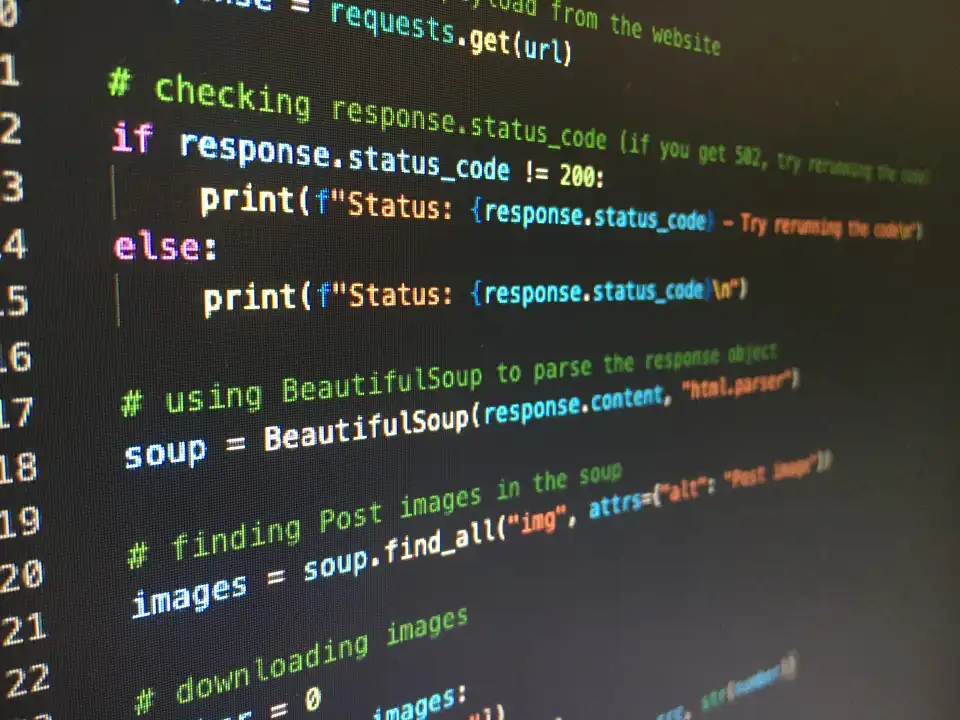Effective programming is not just about writing code that works; it’s about managing complexity to ensure reliability by abstraction. Abstraction is the concept of hiding complex implementation details behind a simple interface. Think of a calculator’s square root button: you don’t need to know the complex algorithm it uses (like Newton’s method), you just need to know that pressing it gives you the correct result. This ‘black box’ approach is a powerful technique that makes code easier to write, read, and maintain.
Table of Contents
💻 The Problem with Monolithic Code
When code is written as one large, continuous block, it becomes difficult to manage. For example, a function to calculate the longest side of a right-angled triangle would involve squaring numbers, adding them, and then finding the square root, all in one place. This code is hard to read at a glance, difficult to test incrementally, and nearly impossible to reuse. If you needed to find a square root elsewhere in your program, you would have to copy and paste the same complex logic, increasing the chance of errors.
💻 Building with Abstract Functions
The solution is to break the problem into smaller, more manageable functions, each with a single, clear purpose. For the triangle problem, we could create separate functions: `square(x)`, `improveGuess(x, guess)`, and `sqrt(x, guess)`. The main `pythag(a, b)` function would then simply call these smaller functions. This approach has many benefits. The code becomes highly readable, as the purpose of each step is obvious. Each small function can be tested independently to ensure it works correctly, making debugging much easier. Most importantly, these functions are now reusable; you can call `sqrt()` anywhere you need it without rewriting the logic.
1. What Abstraction Means
Abstraction = putting a mask on complexity. Instead of juggling every little operation, you wrap them in neat functions, classes, or modules. That way, when you use it, you don’t care how it works inside—just that it works.
Example:
# Without abstraction
db = {"users": []}
db["users"].append({"name": "Lila", "score": 99})
# With abstraction
def add_user(db, name, score):
db["users"].append({"name": name, "score": score})
add_user(db, "Lila", 99)
Now the logic lives in one place. If you change how users are stored, you only fix one function instead of every line in the codebase.
2. Functions: The First Layer
Functions let you package repeatable logic. Reliable code avoids duplication—fix bugs once, not 50 times.
def safe_divide(a, b):
if b == 0:
return None
return a / b
Call it anywhere, no repeated error-checking sprinkled around.
3. Classes and Objects
When logic + data stick together, you get classes. Abstraction at scale.
class BankAccount:
def __init__(self, balance=0):
self.balance = balance
def deposit(self, amount):
self.balance += amount
def withdraw(self, amount):
if amount <= self.balance:
self.balance -= amount
else:
raise ValueError("Insufficient funds")
No one using BankAccount needs to know how the balance is tracked—they just call deposit() and withdraw().
4. Modules and Packages
Big apps = lots of files. Abstraction here means grouping related logic.
mathhides all the gnarly algorithms behind clean functions.- Your app can too:
db_utils.py,auth.py,api.py.
# auth.py
def check_password(user, password):
...
Then elsewhere:
from auth import check_password
5. Interface Contracts
Abstraction makes code reliable if the interface stays consistent. If withdraw() always takes an amount, people can trust it without peeking under the hood.
Changing internals without breaking external contracts = reliable abstraction.
6. Benefits of Reliability by Abstraction
- Isolation: Bugs in one area don’t infect the whole codebase.
- Flexibility: Swap internals (e.g., switch from SQLite to PostgreSQL) without rewriting app logic.
- Readability: Future you (or unlucky coworkers) can actually understand the system.
- Testing: You can test modules in isolation.
7. Golden Rule
If you find yourself copying the same block of code more than twice, it’s begging to be abstracted.
More Topics
- Python Coding Essentials: Different Types of Data
- Python Coding Essentials: Embrace Storage and Persistence
- Python Coding Essentials: Neater Code with Modules
- Python Coding Essentials: Lock Down with Data Encryption
- Python Coding Essentials: Files and Modules Done Quickly
- Python’s Itertools Module – How to Loop More Efficiently
- Python Multithreading – How to Handle Concurrent Tasks

